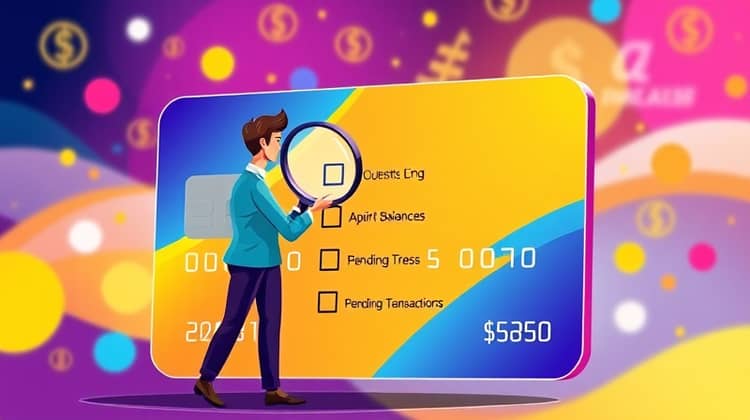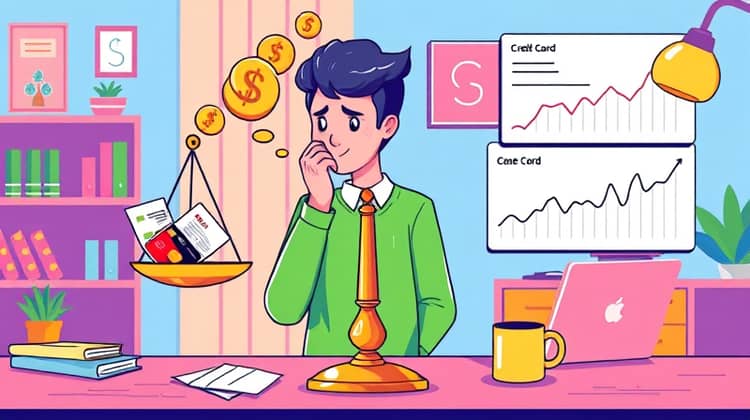Credit Card Closure: Avoid Mistakes with These Simple Steps

Closing a credit card can be a daunting task for many consumers, and it’s essential to navigate the process carefully. Missteps can lead to unwanted consequences that might affect your credit score or leave rewards unclaimed. This article provides straightforward steps to ensure a smooth and error-free credit card closure.
Understanding your credit card fully can give you an advantage, allowing you to close it without incurring additional fees or losing out on rewards. In the sections below, we will explore key factors to consider before making the final decision to close your account.
Understand Your Card’s Benefits and Drawbacks

Before making a decision to close your credit card, it is crucial to analyze its benefits and drawbacks. Different cards come with various perks, such as cash back, travel rewards, or low interest rates, which could benefit you financially. Ignoring these could cost you potential rewards or privileges associated with the card.
Additionally, consider the potential downsides. Some credit cards may charge annual fees that can accumulate over time, but others may have offers that outweigh this cost, such as sign-up bonuses or increased rewards points. Assessing these factors will give you a clearer picture of whether closing the card is the right move for you.
- Check for any active rewards or promotions
- Evaluate annual fees versus benefits
- Consider how it fits into your overall credit strategy
Once you have evaluated both the benefits and drawbacks, weigh them against your current financial needs. This understanding will help you make an informed decision on whether it’s advantageous to close the card or keep it open.
Check for Outstanding Balances

Before you proceed with closing your credit card, it’s essential to check for any outstanding balances. Ensure that your account is paid off in full, as unpaid balances may accrue interest even after the card is closed. This oversight can lead to complications and possible damage to your credit score, which you want to avoid at all costs.
Also, verify if there are any pending transactions that haven’t yet cleared. Discovering these after you close your card could lead to confusion and additional fees that could disrupt your financial planning. Taking care of these details now ensures a clean closure of your account.
Redeem Rewards

Another critical step before closing your credit card is to redeem any rewards you may have accumulated. Many credit cards offer loyalty points or cashback that could be lost if you close the account prematurely. It’s worth your time to check how many rewards are left and the best strategy for redeeming them efficiently.
Each card issuer has different rules regarding reward redemption, so be sure to explore all options and timelines. Some may require you to redeem points before a specific expiration date, while others may allow you to transfer points to various travel partners or cash options. Knowing your options can maximize the value of any accrued rewards.
Lastly, be diligent about tracking your redeemed rewards. Keep a record of what was redeemed and how it was processed to avoid any discrepancies or misunderstandings later on. This small step can save you headaches down the line.
Update Automatic Payments

It’s crucial to remember any automatic payments linked to your credit card, as these must be redirected before the account closure. Failing to do this could result in missed bills and accounts falling into delinquency, which affects your credit score.
Make a list of all subscriptions, services, or bills that utilize your credit card for payment. This could include utilities, streaming services, or insurance premiums; addressing these promptly will ensure seamless transitions without interrupting your services.
- Identify all recurring charges
- Update payment methods on each service
- Confirm new payment methods are active
By ensuring these steps are completed, you can prevent unwanted late fees and potential damage to your credit history, allowing for a more secure transition away from the card.
Alert the Cardholders

Once all balances have been settled and automatic payments updated, it's time to alert the cardholders about your decision. Communication is key, especially if there's a co-signer or a joint account involved. Informing them will help manage expectations and clarify future financial responsibility.
When notifying cardholders, provide them with the reasoning behind your decision. This transparency can prevent misunderstandings and maintain cordial relationships, depending on the nature of your relationship.
Maintaining open communication not only fosters goodwill but can also avert disputes regarding joint responsibility for any future financial obligations related to the card.
Consider the Impact on Your Credit Score

It's essential to understand that closing a credit card can have an impact on your credit score. The utilization ratio, which accounts for credit limit versus debt taken, may increase if you close cards with high limits, leading to score fluctuations.
Additionally, if the card you are closing is one of your oldest accounts, it may age skew your credit history negatively. This is because a shorter credit history can reflect poorly on your creditworthiness. However, if the card is costly to maintain, the potential fee savings may outweigh the possible harm.
Review your overall credit strategy. It might be wise to keep the card open if it holds significant weight in your credit mix or if it helps maintain a lower utilization ratio.
Research the Closure Process

Before initiating the closing of your credit card, it is wise to research the specific closure process as outlined by your card issuer. Every financial institution has its own set of regulations and procedures, and familiarizing yourself with them will save you time and potential headaches later.
Not only can this help you prepare for what information you need to provide, but it can also clarify if phone calls are required, or if there are online options for closure.
Follow the Closure Process

After understanding the closure process, it’s time to take action and close the account as per your issuer’s instructions. Make sure to document the closure request for your records, either through email confirmation or notes from a phone conversation. This practice is essential in case of any disputes arising later.
It is also prudent to follow up several weeks after submitting your closure request. Confirm with the credit card company that your account has indeed been closed, and check if there are any lingering outstanding balances or fees.
- Request account closure through the preferred method (online or via phone)
- Document the confirmation of account closure
- Follow up to ensure closure is complete
Following these steps diligently will provide you peace of mind knowing that the process was handled promptly and accurately, avoiding future complications.
Monitor Your Credit Report

After closing your credit card, it is crucial to monitor your credit report. Keeping an eye on your credit report can help you ensure the account closure was updated correctly and that there are no signs of error or fraudulent activity.
Regularly checking your credit report helps keep your credit score in check and ensures that it reflects your current standing accurately, which is essential in today’s credit-driven economy.
Conclusion

Closing a credit card account can have its challenges, but by following these simple steps, you can avoid common pitfalls and protect your financial standing. Understanding the benefits, handling automatic payments, and responsibly redeeming rewards can help you close your account without any residual complications.
Being proactive about the closure process allows you to focus on your finances without worry. Staying informed will also empower you to make sound financial decisions in the future, ensuring your credit remains robust even after parting ways with a card.






